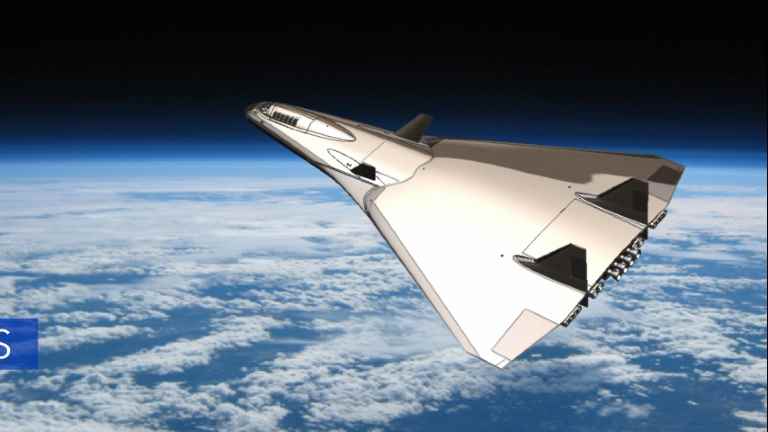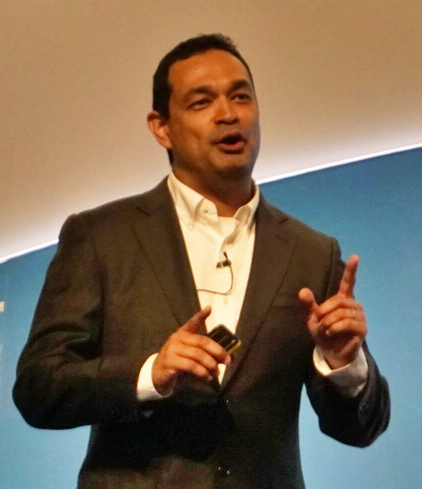Why Space is Important to Address Climate Change
by Frank Trevino – CMO Exodus Space (reprinted from www.exodus-space.com)
Space research is key to saving our planet. In the mid 1980s, NASA satellite data revealed a scary and growing hole in the ozone layer over the South Pole which led to an international agreement addressing a global environmental problem. Since then, the ozone situation has stabilized with the help of space data. But we continue to face new threats with climate change and sustainability. Space research will once again help address these problems before it’s too late.
It is this space data but also spinoff technologies from space research that is helping us fight climate change. Space technologies such as GPS are already helping reduce emissions with improving navigation efficiencies by 15-20% and semiconductor solar cell technology from space research is now considered ‘efficient’ compared to its earlier days. Satellites continue to monitor our planet for changes and combined with exploratory space missions from other planets, helps with predictive modeling outcomes for Earth. For example, probes revealed how a runaway greenhouse gas syndrome turned Venus into what it is today, a hot and uninhabitable planet of acid rain. By discovering other world’s history, we can use this data to understand our own planet and climate change mitigation strategies. Space also offers the ability to keep Earth free from damage through space mining and space manufacturing. One example is manufacturing solar cells in space. Solar cells require caustic chemicals that are harmful on Earth when manufactured, so manufacturing solar cells in space makes sense and, in the future, keeping the solar cells in space is more efficient by beaming back the energy to Earth.
The more we bring the cost down, the more opportunities we have to go into space. The more we access space, the more we can accomplish with science and technology to help address climate change and environment sustainability.
And let’s not forget the needed on-going research and development in space for new technologies and more efficient materials, where heavy gravity on Earth creates tiny flaws in the material. These items will be used for terrestrial purposes to address climate change and environment sustainability.
A very important, but not highly considered factor, is the inspiration of space and its impact on people. The ‘overview effect’, impacts anyone in space and helps them understand our fragile atmosphere and new respect for the environment, thus creating a much-needed change movement to protect our mother Earth.
This is all great, but we are still limited in our efforts of reaching space to do more. We realize the greatest challenge of space is getting there. The costs are enormous, the risk is high and current approaches are not sustainable. On average, the space industry launches a rocket every 3 weeks at the most, but to achieve what we need to do, we need to launch as frequent as 3x a week. We need a new approach to reaching space with the goals of efficiency and frequency. Efficiency comes in the form of 100% fully reusable space launchers with optimal design that bring down the cost of going to space. The other area is frequency, similar to an airplane schedule that will allow us to continuously take supplies, launch satellites, on-going R&D, create and test materials, ferry people, and do so much more. The more we bring the cost down, the more opportunities we have to go into space. The more we access space, the more we can accomplish with science and technology to help address climate change and environment sustainability.
Our Exodus Space AstroClipper is transforming access to space by developing fully reusable and efficient, AI-driven horizontal take-off and landing spaceplanes to make access to space efficient, affordable, safe and sustainable for the benefit of all humanity. We can land and take-off from any spaceport runway around the world and will eventually create a human-rated version to carry astronauts, scientist and people of change to drive efforts back home on Earth. We currently have Letters of Intent (LOI) for more than 250 space launches.
We are not creating the science and technology directly to help with climate change or environment sustainability, but we are creating the technology to “enable others” to do so and to do so more often.
Exodus Space believes space transportation is defined by fully reusable and efficient, AI-driven horizontal takeoff and landing spaceplanes. Utilizing our patented designs and forward thinking in multipurpose launch vehicles, our goal is to transform how we access space to benefit all humanity.
Frank is the CMO of Exodus Space and Partner | AI Strategy with Tinman Kinetics. Exodus Space is developing a fully reusable, two stage to orbit, horizontal take-off and horizontal landing spaceplane. Tinman Kinetics is a cognitive technology startup born out of the IBM Watson AI XPRIZE competition and recent participant in the NASA iTech and U.S. Department of Defense MD5 pitch programs.
A 20-year digital strategy veteran and expat with 10+ years technology leadership experience in Asia, Africa, and Europe. Frank’s digital transformation philosophy is to connect People, Products, Process, and Technology to transform data into digital assets. As a proponent of the 4th Industrial Revolution, some current transformation projects include cloud, IoT, artificial intelligence and blockchain technologies. Frank’s accomplishments are recognized and featured in Inc. Magazine, CNET, CBS, Geek News, Towards Data Science, Space News, SBS & MBC News Korea, Korea Times and is a winner of numerous Communicator Awards, a Silver Anvil Award, & two-time SBA Award. Frank holds an MBA from the University of Houston and a BS from the University of Texas at Austin.






